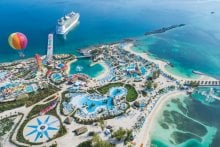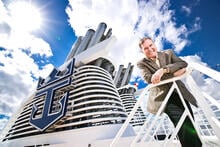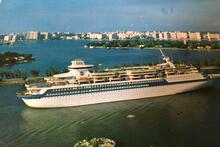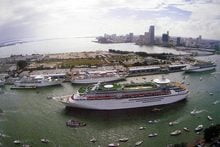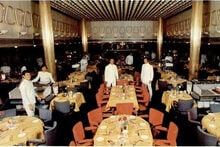Royal Caribbean started as a company in 1968, and by the 1980s, had made a name for itself with a small fleet of impressive cruise ships and had become an increasingly popular cruise line.
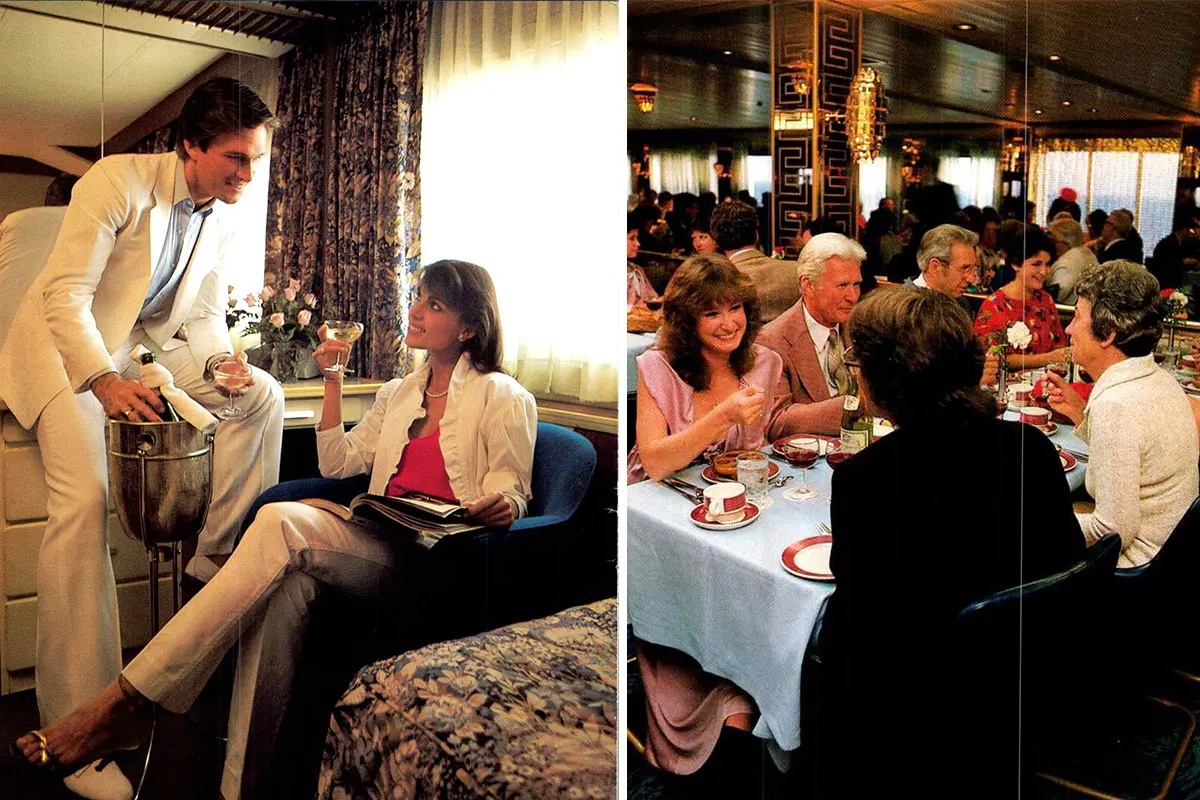
Song of Norway, Nordic Prince, and Sun Viking had lead the way for the company, and Song of America & Viking Serenade joined the fleet in 1982. By the end of the 80s, the new Sovereign Class would redefine what a cruise ship consisted of as it ushered in the first megaships.
Though the 1970s had concluded optimistically, the 1980s were ushered in by a recession in the United States. The cruising public became more cautious about their disposable vacation income, and the cruise lines began advertising strenuously, anticipating and countering rival company offers. Discounting, free airfare and the necessity to increase onboard revenues emerged as urgent cruising realities of the harsher 1980s.
Despite these challenges, the cruise industry managed to grow in the 1980s and Royal Caribbean found itself right in the middle of a struggle with competitor lines for building ever-increasingly larger ships. Song of America had proven the economies of scale was the future of cruise ships, and it would send Royal Caribbean down the path of building a ship as massive as Sovereign of the Seas.
Read more: What happened to Royal Caribbean's first cruise ships?
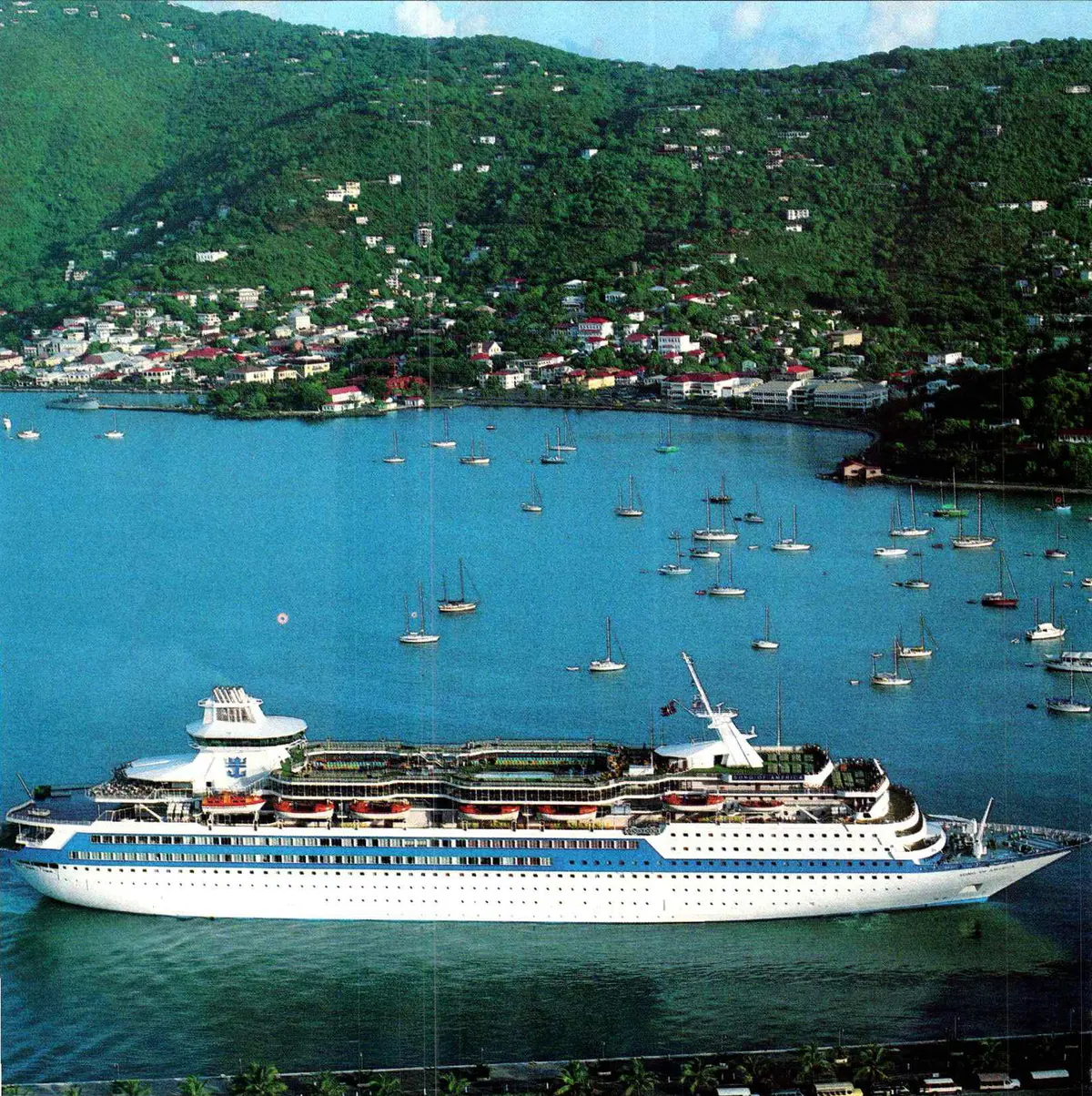
As the decade came to a close, Royal Caribbean had positioned itself perfectly for the immense growth the 1990s would bring.
Here's what it was like to cruise on Royal Caribbean in the 1980s.
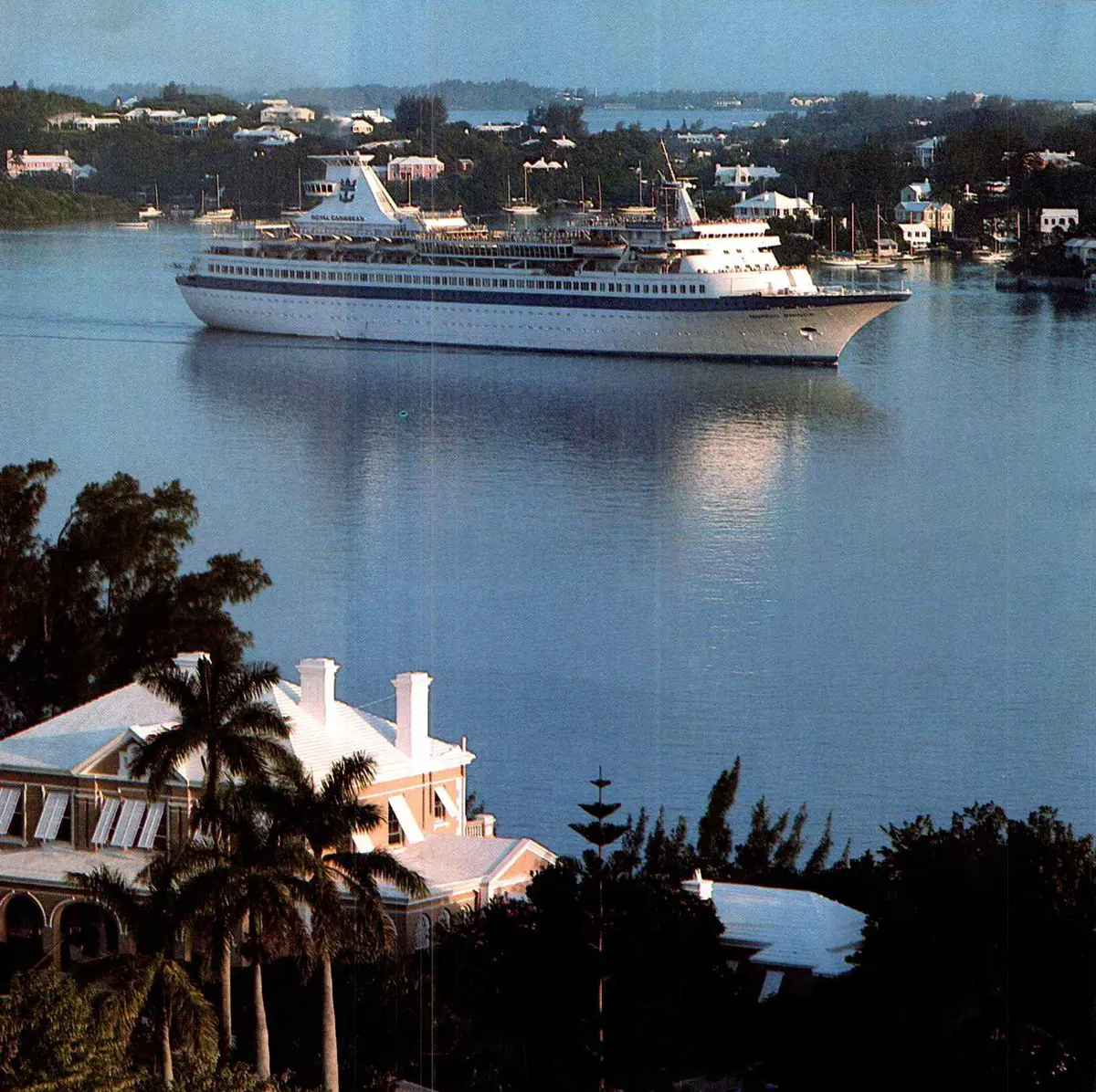
Before even looking at the onboard experience, cruise ships in the 1980s were smaller than today.
Nordic Prince was 18,346 GT and 552 feet long, whereas Wonder of the Seas is 236,857 GT and 1,188 feet long.
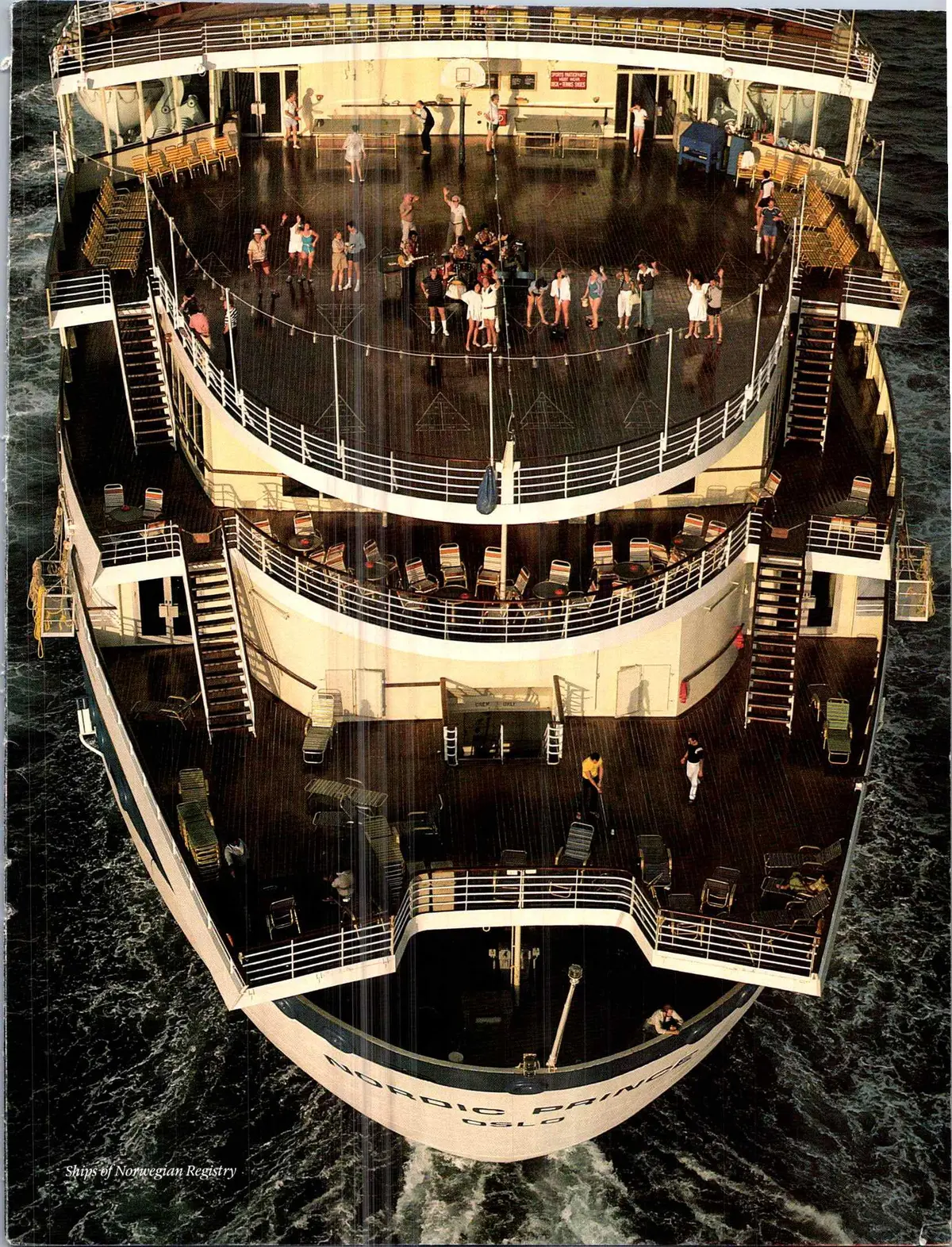
A lot of the marketing material for a cruise in the 1980s was centered around the good times you could have onboard a cruise ship. They were selling what we would call today "a vibe" of being away from it all and enjoying time on a floating oasis.
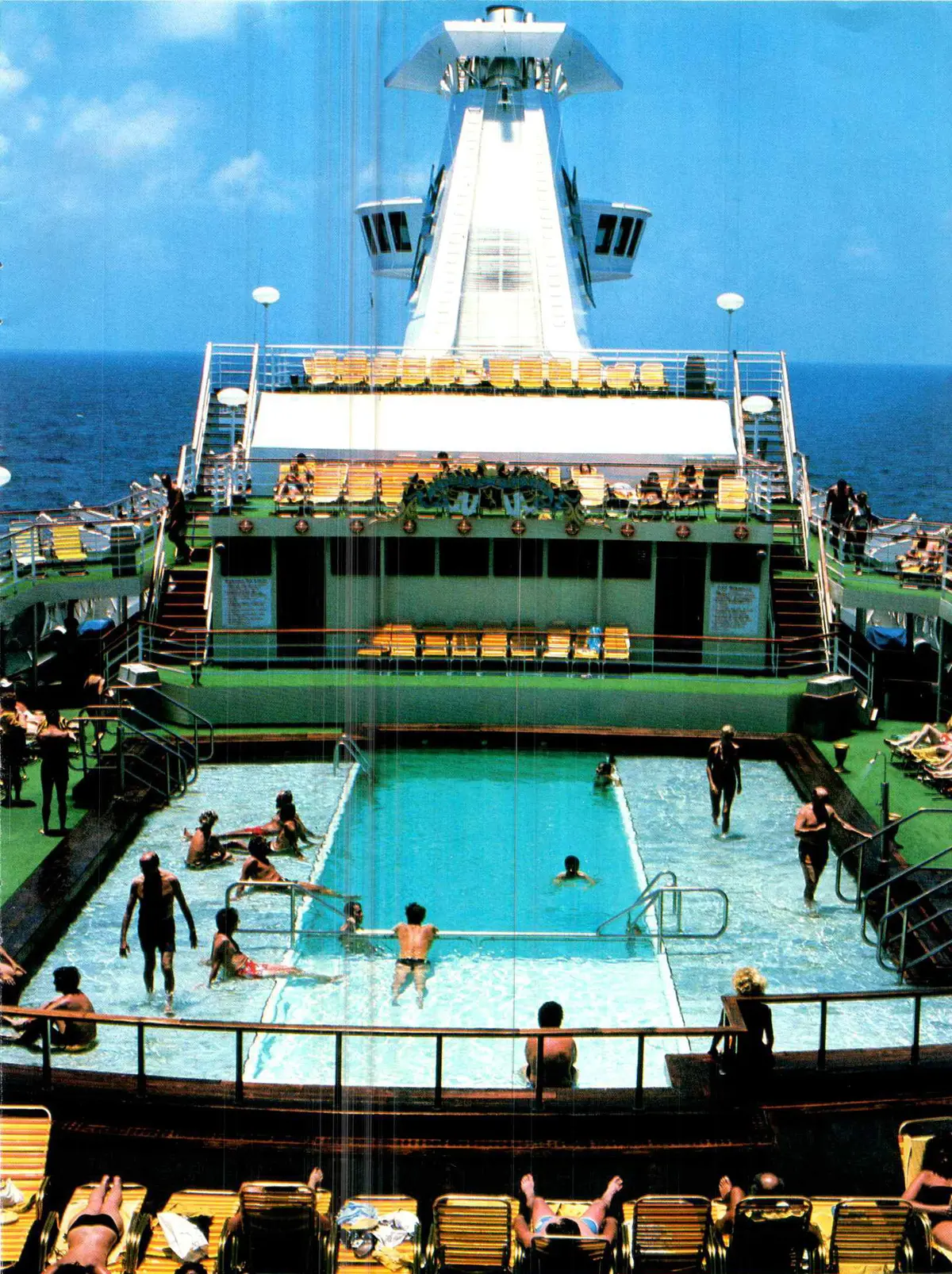
Similar to today, the pool deck was the epicenter of activity on a cruise ship. A holiday spent tanning and enjoying the warm Caribbean sun was a major selling point.

Of course, dining was an important aspect of a cruise in the 1980s as well. In the marketing material, Royal Caribbean said La Chaine de Rotisseurs (a French international gastronomic society), "thinks our food is consistently superb."
"Our cuisine, in fact, could be one good reason the readers of Travel/Holiday magazine voted our ships among the world's best."
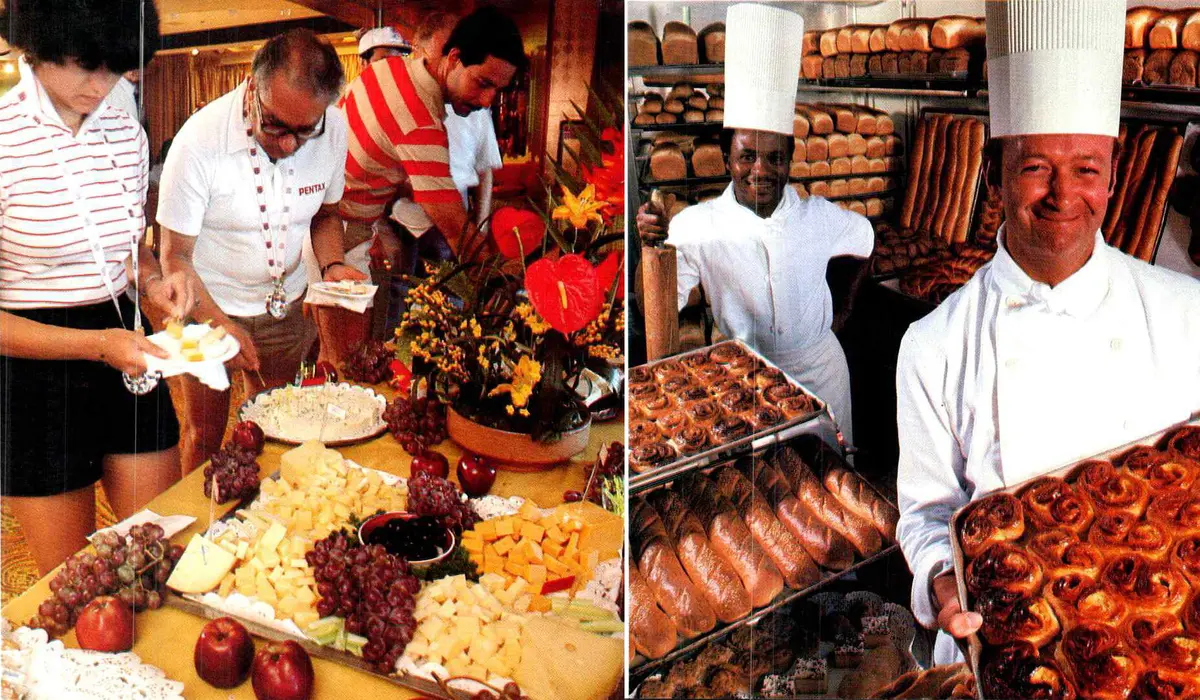
Just like today, ships had their own bakeries onboard. And a cruise in the 1980s still had a midnight buffet in the dining room, which was slowly phased out by the 2000s.
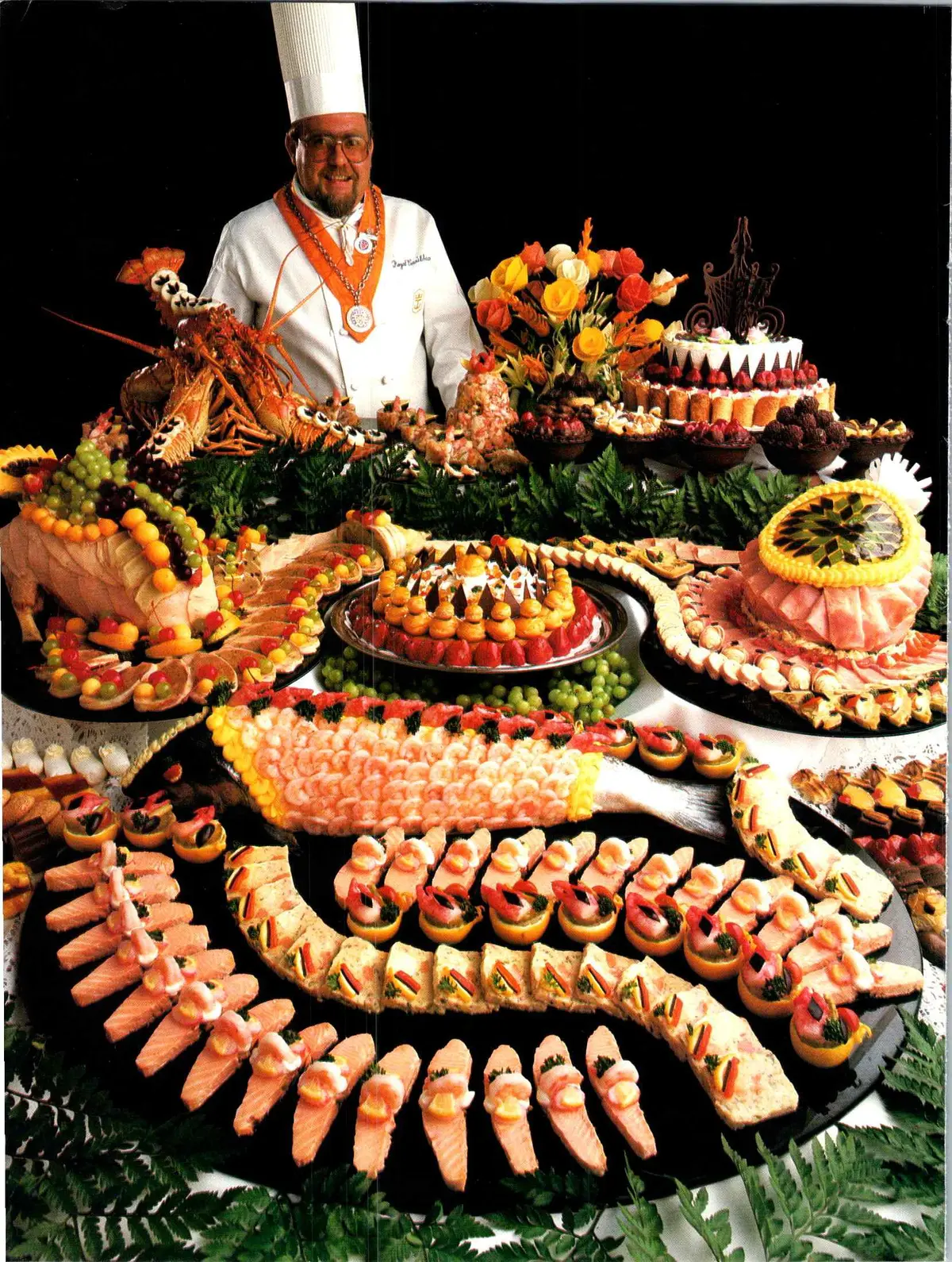
The main dining room was a focal point of dining, as specialty restaurants wouldn't become an option for another decade.
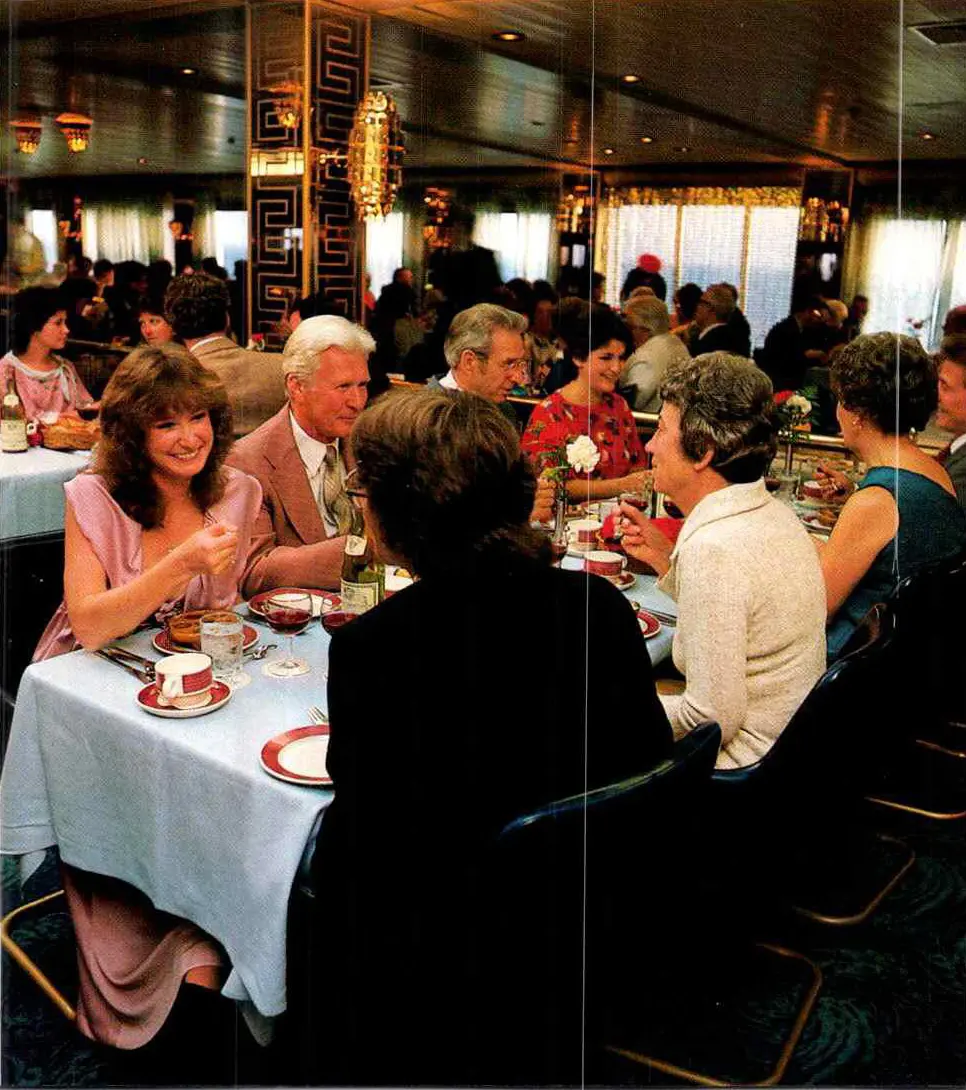
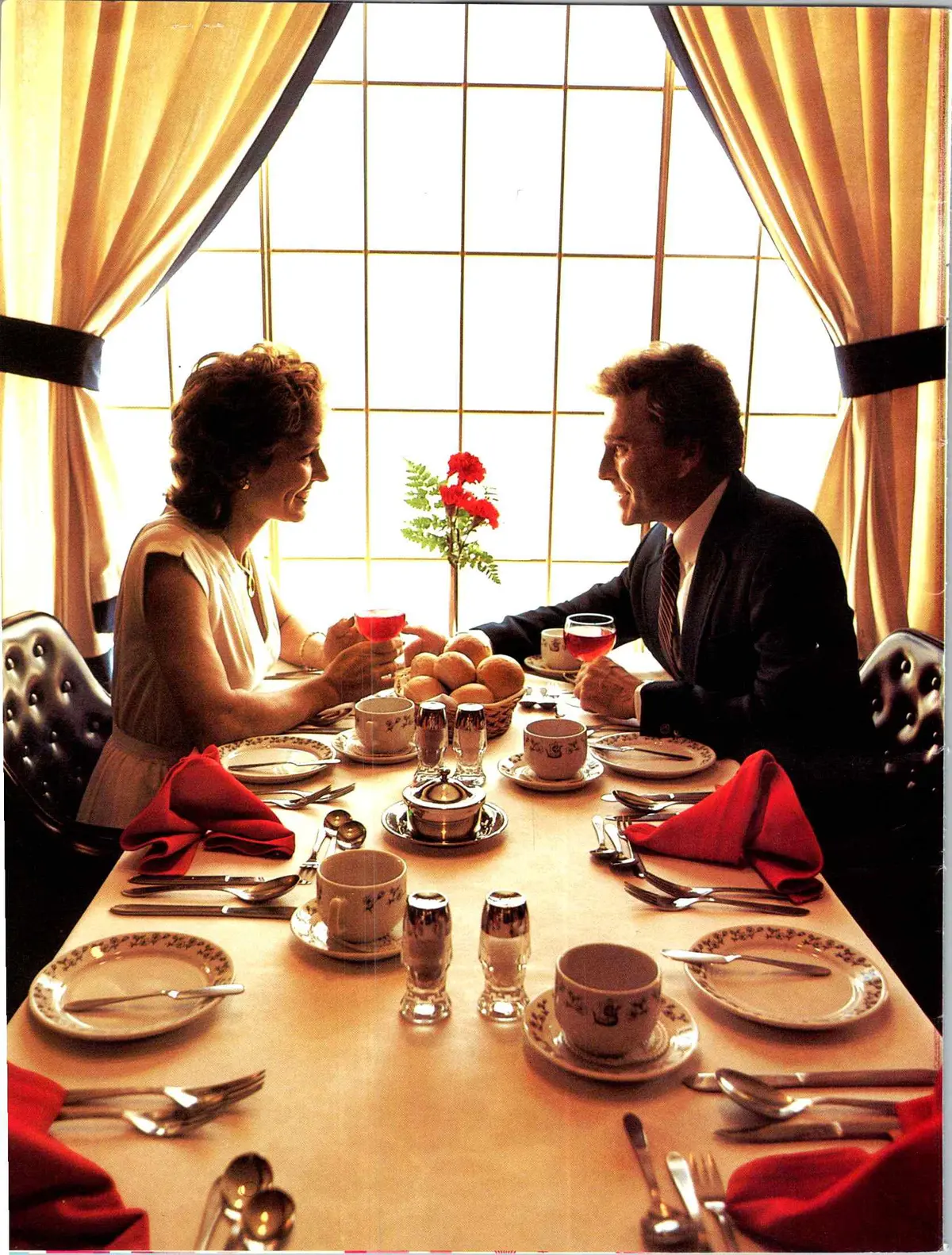
Royal Caribbean wanted to offer the kind of vacation where everything was made available and not as much thinking as a land trip.
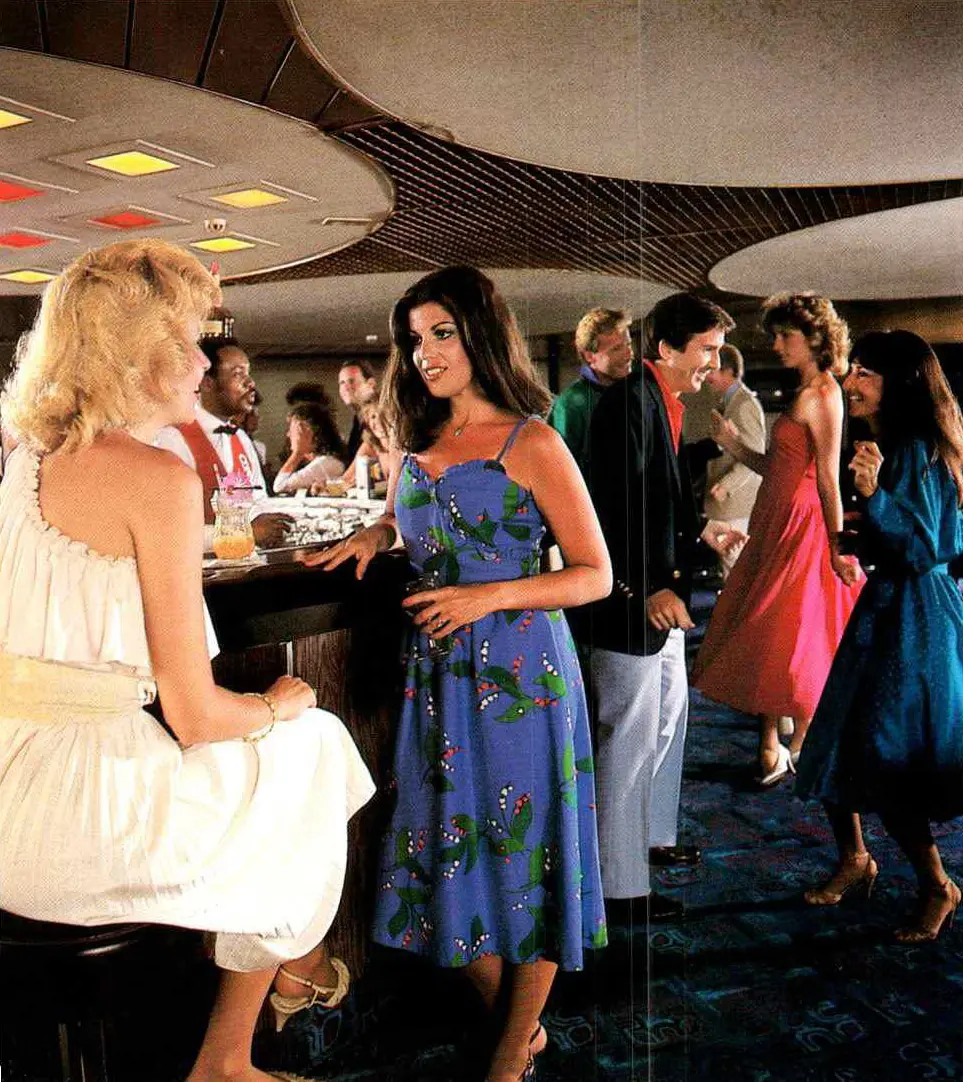
They also marketed a cruise as a great way to celebrate, "As tensions disappear at sea, relationships flourish. Which means those starry-eyed couples aren't all newlyweds. Some may be celebrating silver and golden wedding anniversaries. Or even second honeymoons. You'll also find that about a third of our passengers are single."
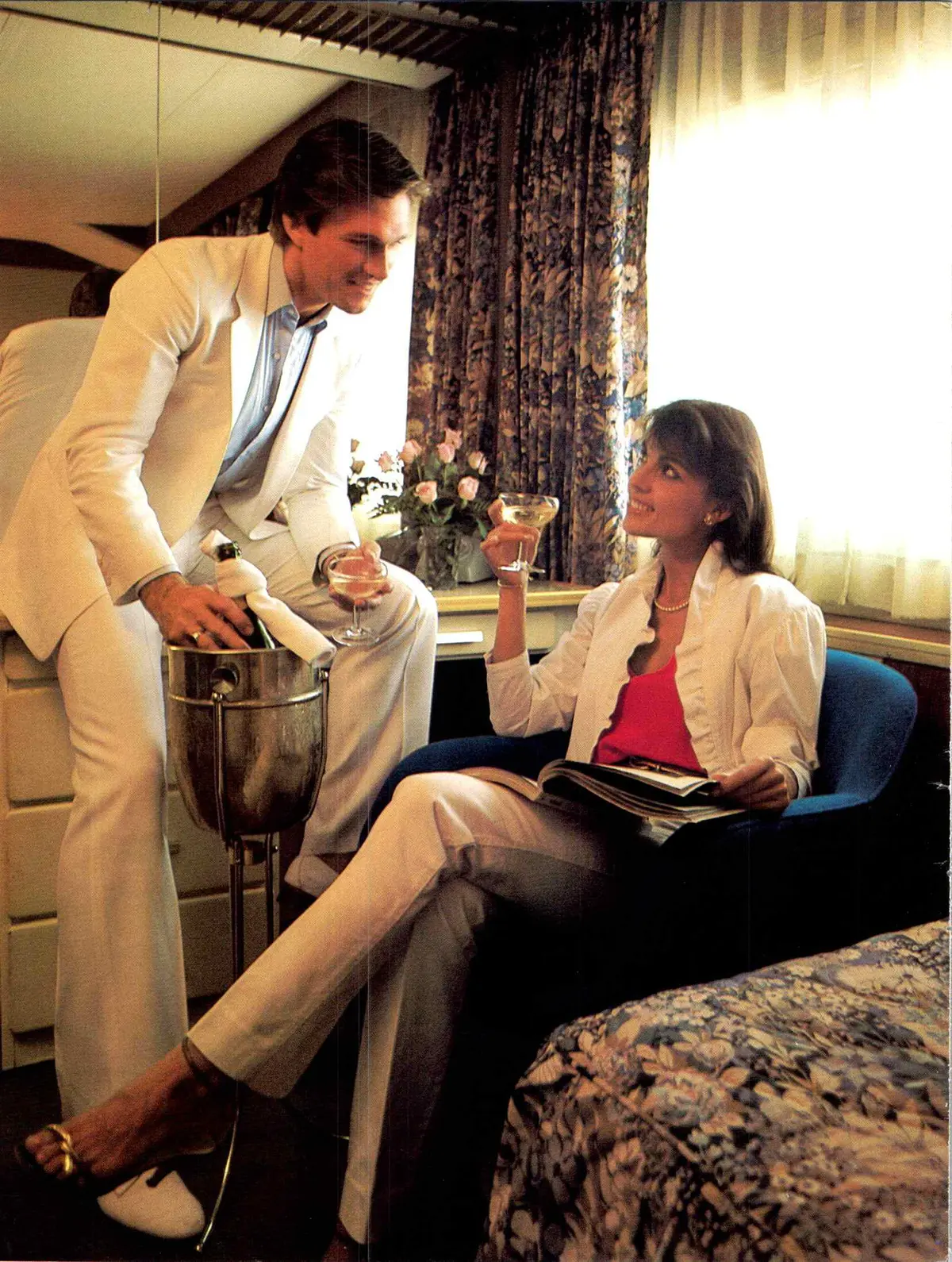
What was a cruise ship cabin like in the 1980s? Decor style aside, they had a lot in common with a cabin today.
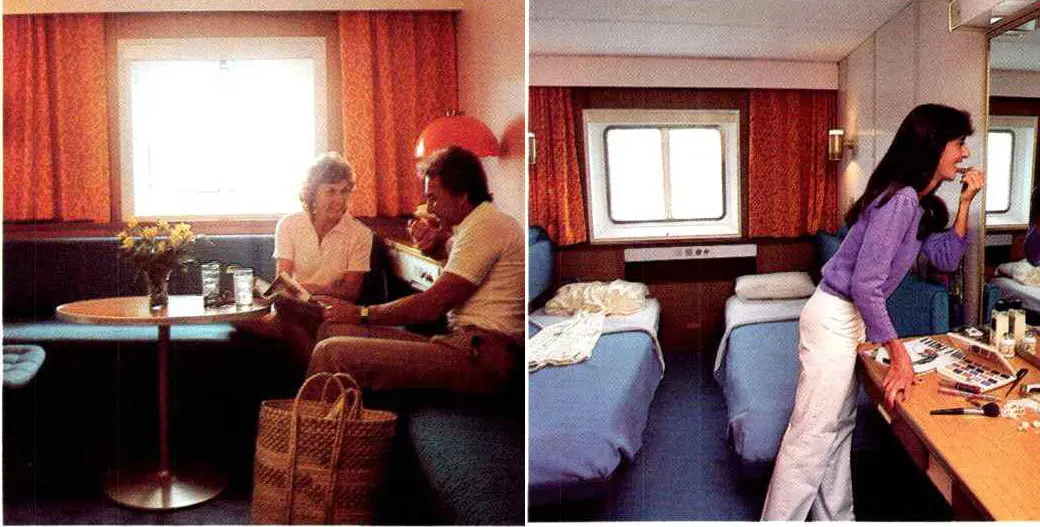
Royal Caribbean staterooms vary in size, in price, and in location. Some are even available with connecting staterooms to accommodate four or five people. Others offer third and fourth Pullman beds.
All cabins had:
- Individual room temperature control
- Private shower and bathroom facilities
- 110-volt/60 cycle U.S. current for hair dryers and shavers
- Three-channel radio
- Reading lights
- A dressing table and full-length mirror
- Plenty of drawer space
- A full-length wardrobe closet
- Wall-to-wall carpeting
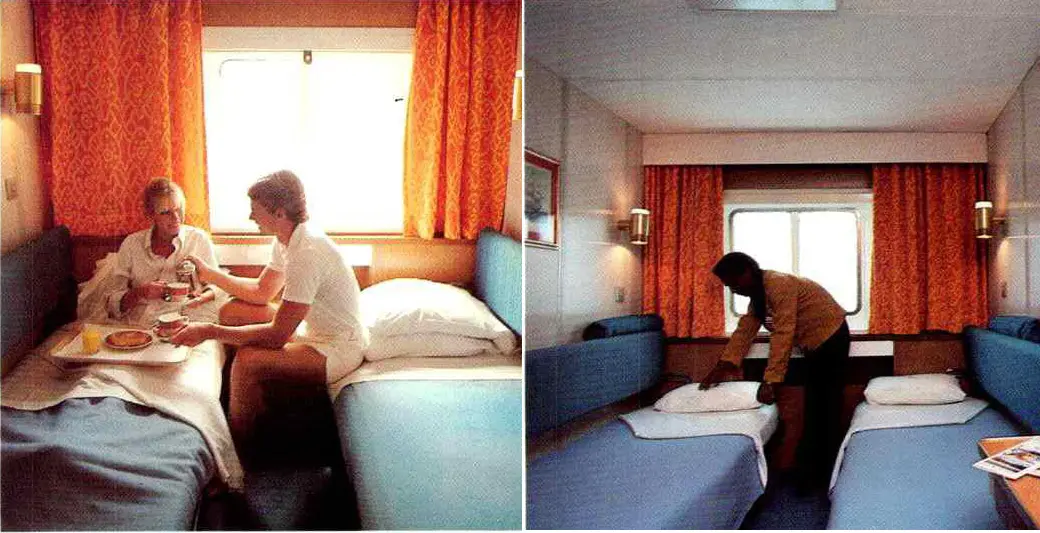
An interesting selling point was the entertaining aspect of having your own room, "Since most accommodations have beds that convert to sofas, you can use your stateroom for more than sleeping. You can use it for entertaining. Passengers very often invite friends to their staterooms to enjoy champagne or drinks before dinner. Or for a bon voyage party before sailing."
In terms of service in a cabin, a lot has changed since the 1980s. Room stewards do the same basic services you can expect today, but the marketing material advertised more offerings, "Every stateroom has a steward, who performs a little shipboard magic every evening. When you go out for dinner or dancing, you'll leave a pleasant sitting room."
"But when you come back, you'll find a cozy bedroom. With fluffed-up pillows. Turned-down covers. And fresh fruit in the basket on your dressing table. This is the kind of attentive service you'll get every single night.
"And every single day, we'll make your stateroom neater than you left it. We'll also leave clean towels and a bucket of ice. Pick up and return your laundry. Deliver a schedule of activities and coming events, along with ship news and weather forecasts. And provide beverage and snack service, 24 hours a day. "
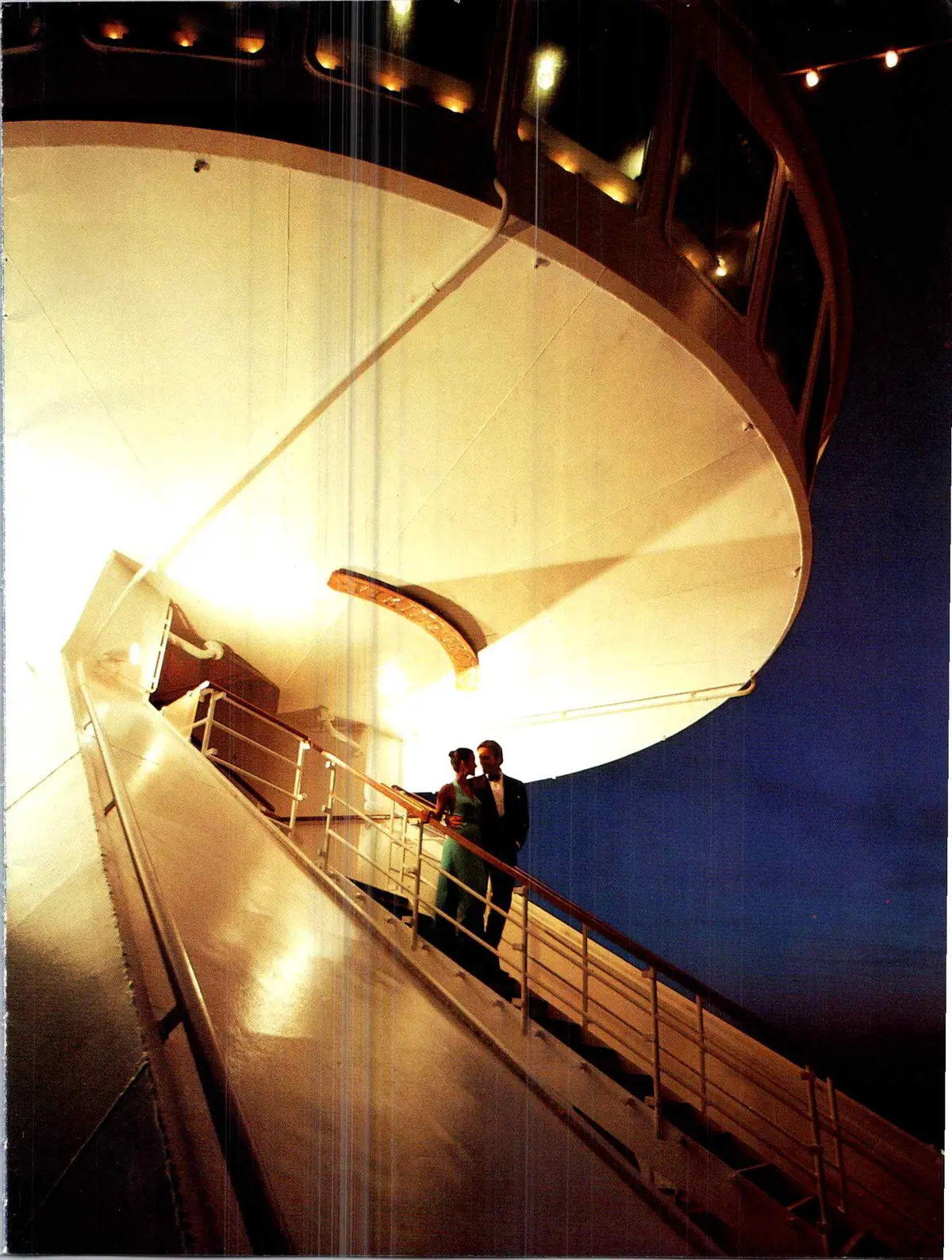
While the Viking Crown concept is retained in many of Royal Caribbean's ships today, the feature was designed initially for Song of Norway. Royal Caribbean made a name for itself with its signature space, the Viking Crown Lounge.
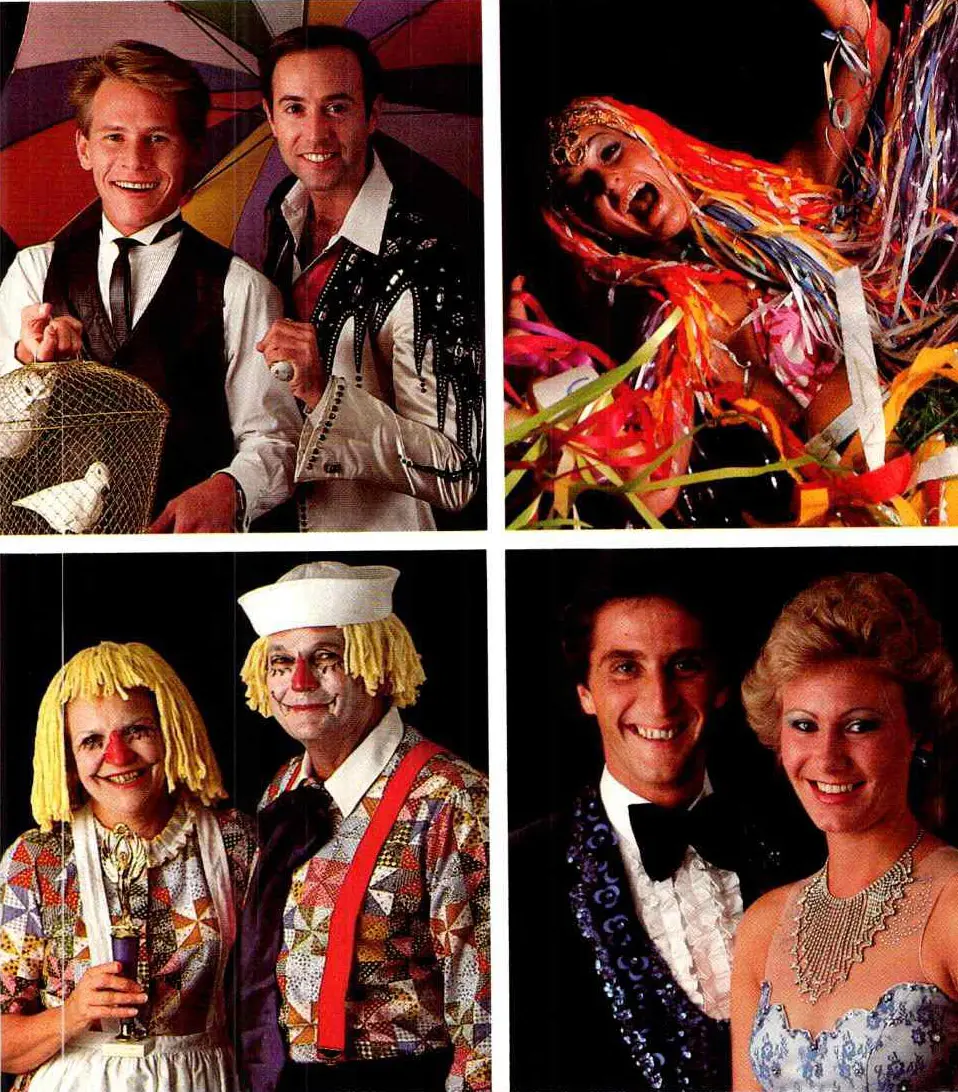
Entertainment on a cruise in the 1980s included a variety show that had a ventriloquist, comedian, cabaret singer, or big-band era music.
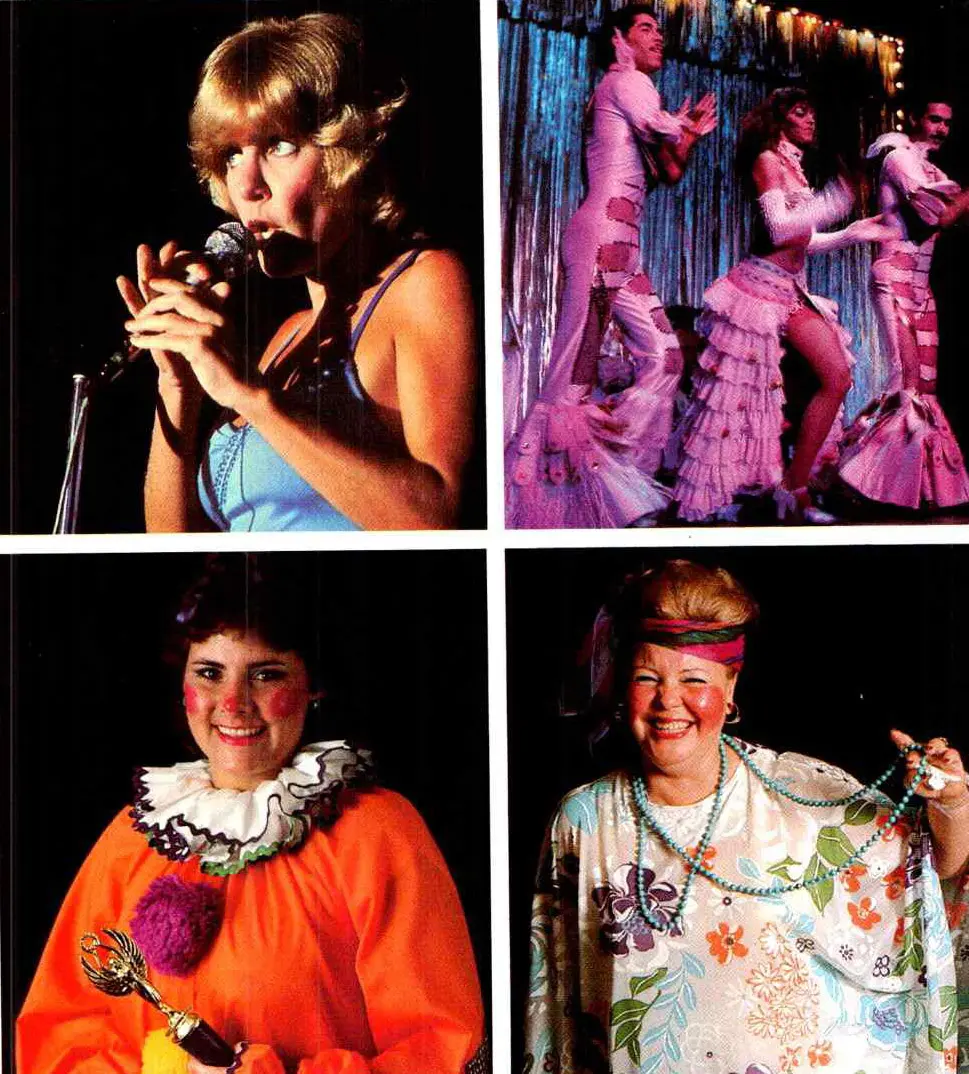
There was also passenger talent night and masquerade night on cruises of this era. On passenger talent night, guests would sing, dance, make magic, or just about anything else they were brave enough to demonstrate for their fellow guests and crew.
Masquerade night is just what it sounds like: it is an old-fashioned costume gala. Prizes are given for Most Humorous, Most Original and Most Artistic costume. Guests were encouraged to bring a costume, but the staff could provide necessary materials to build their own onboard.
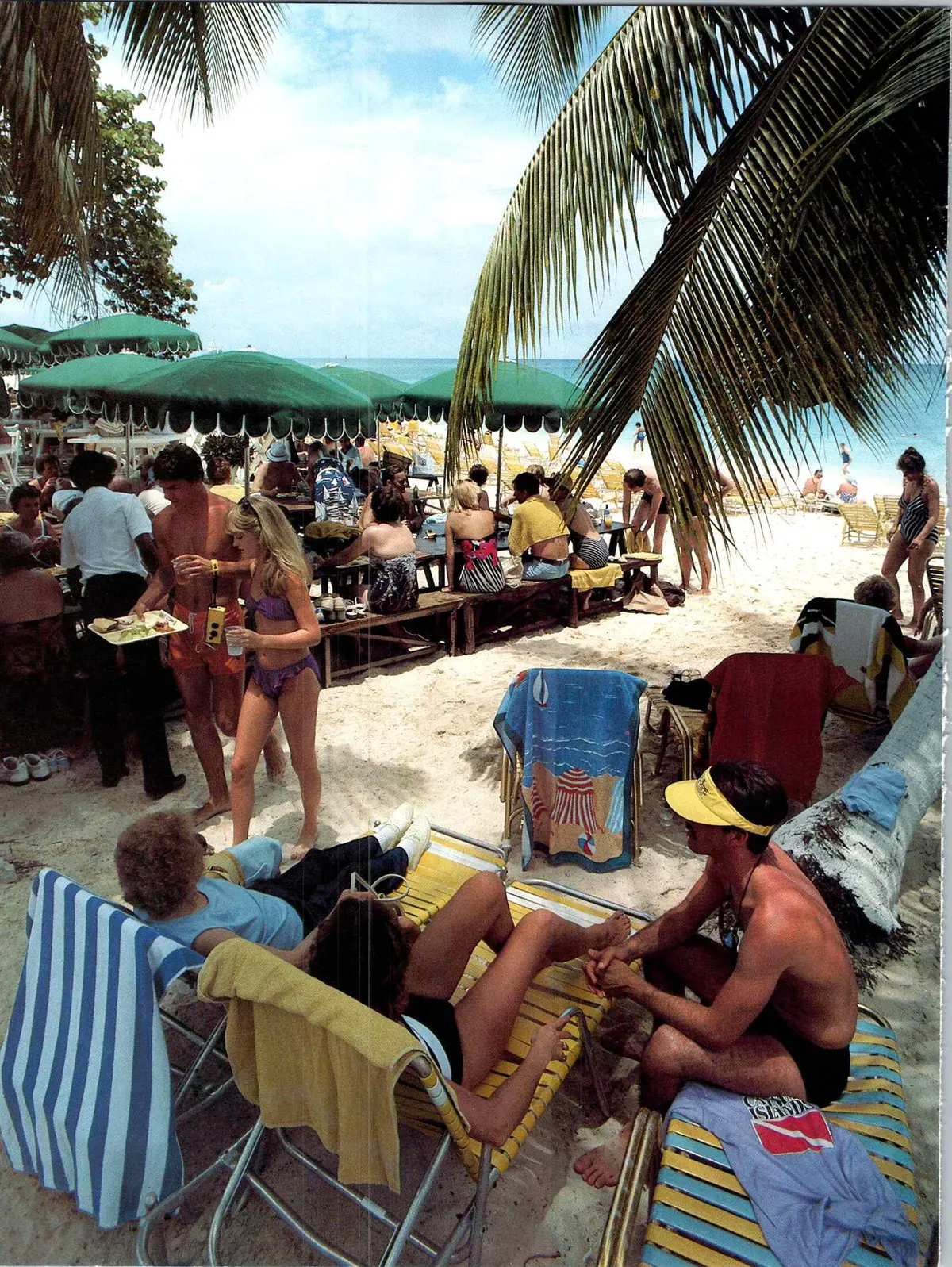
Once your ship made it to port, it was time for a shore excursion. There were 7-night cruises from Miami that went to Jamaica, Grand Cayman, Playa del Carmen, Mexico, and Cozumel, Mexico.
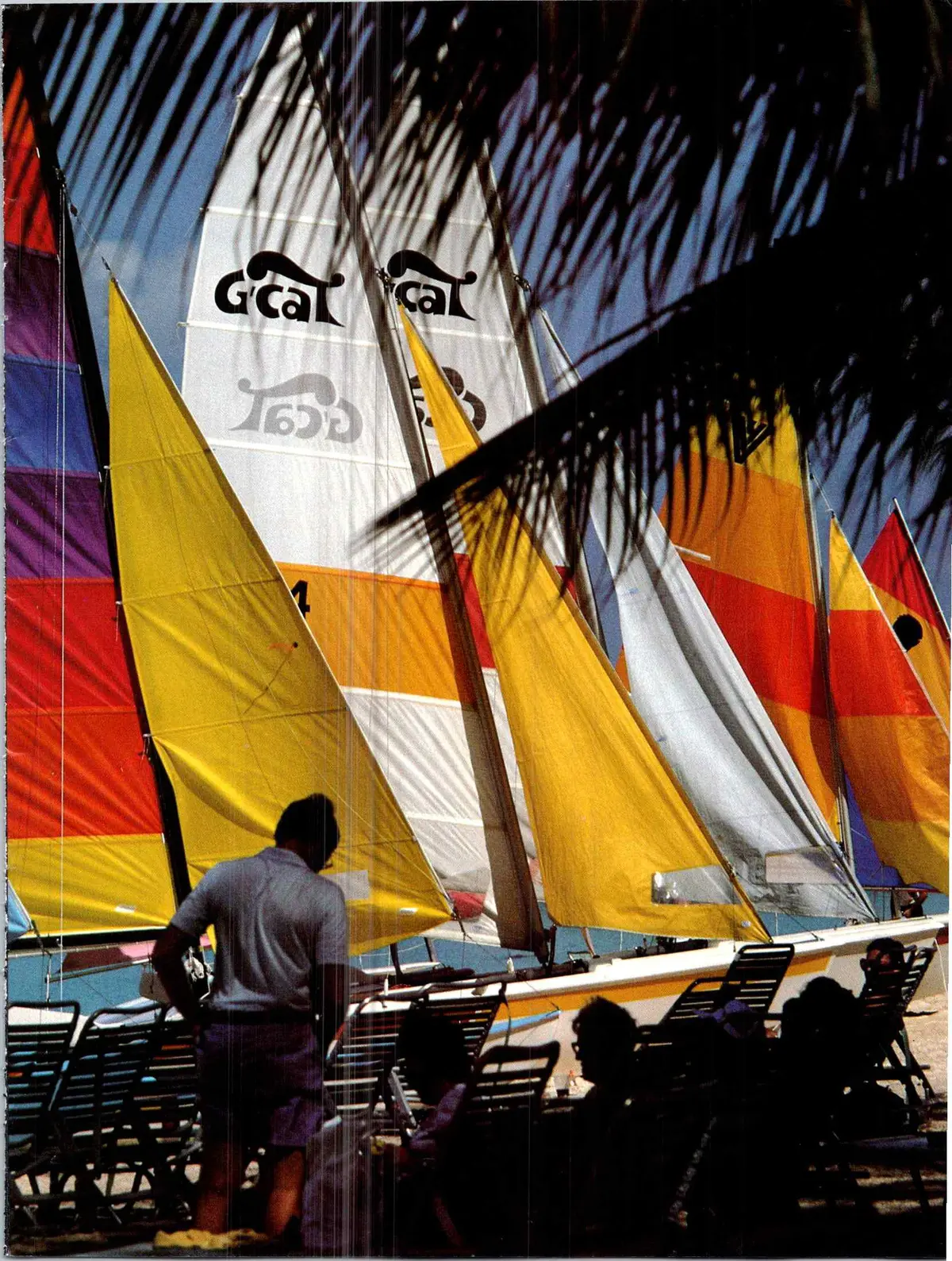
An Eastern Caribbean itinerary sailed from Miami to the Bahamas, Puerto Rico, and St. Thomas.
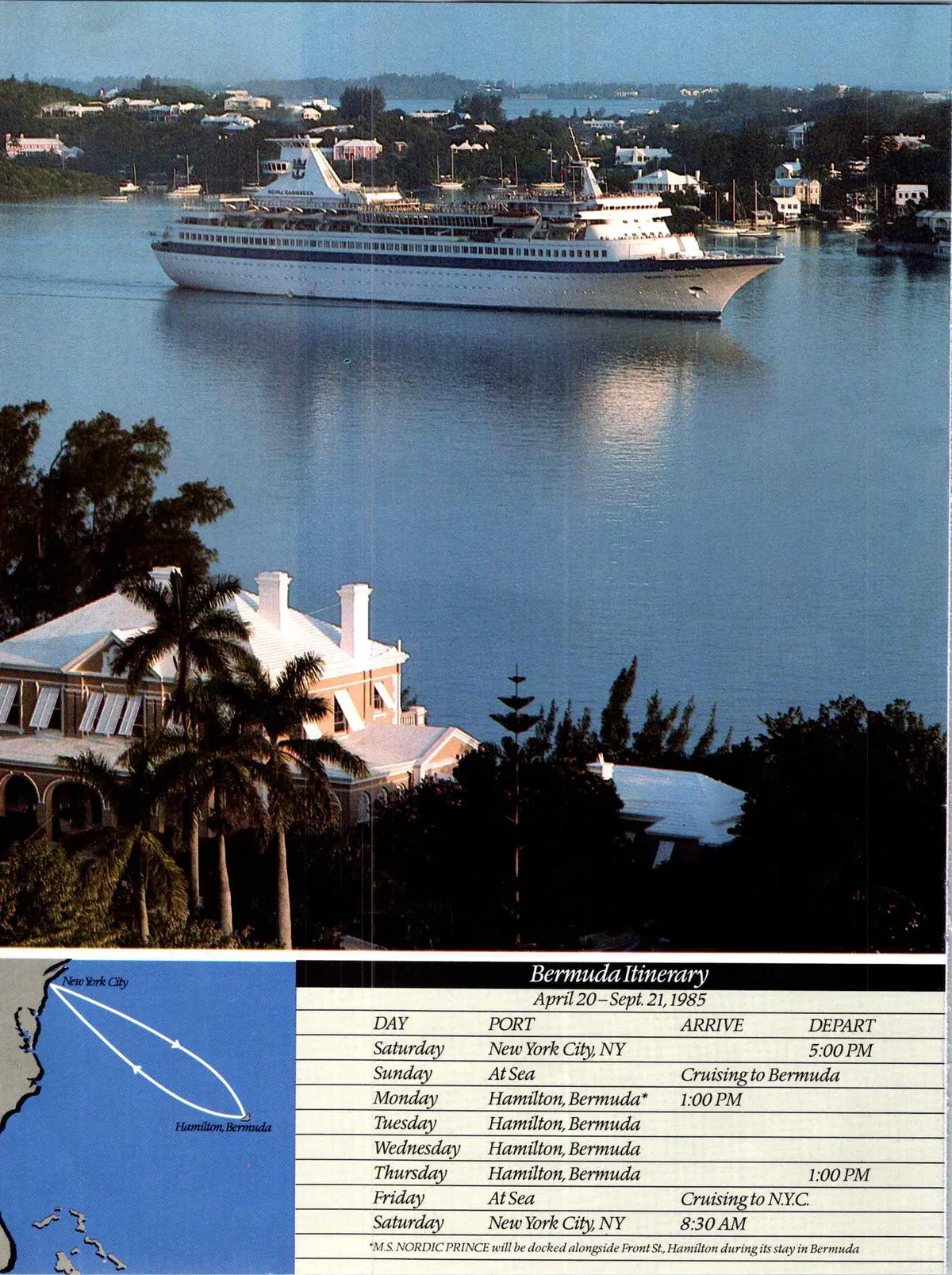
Bermuda runs in 1985 included four days in Bermuda before returning to New York.
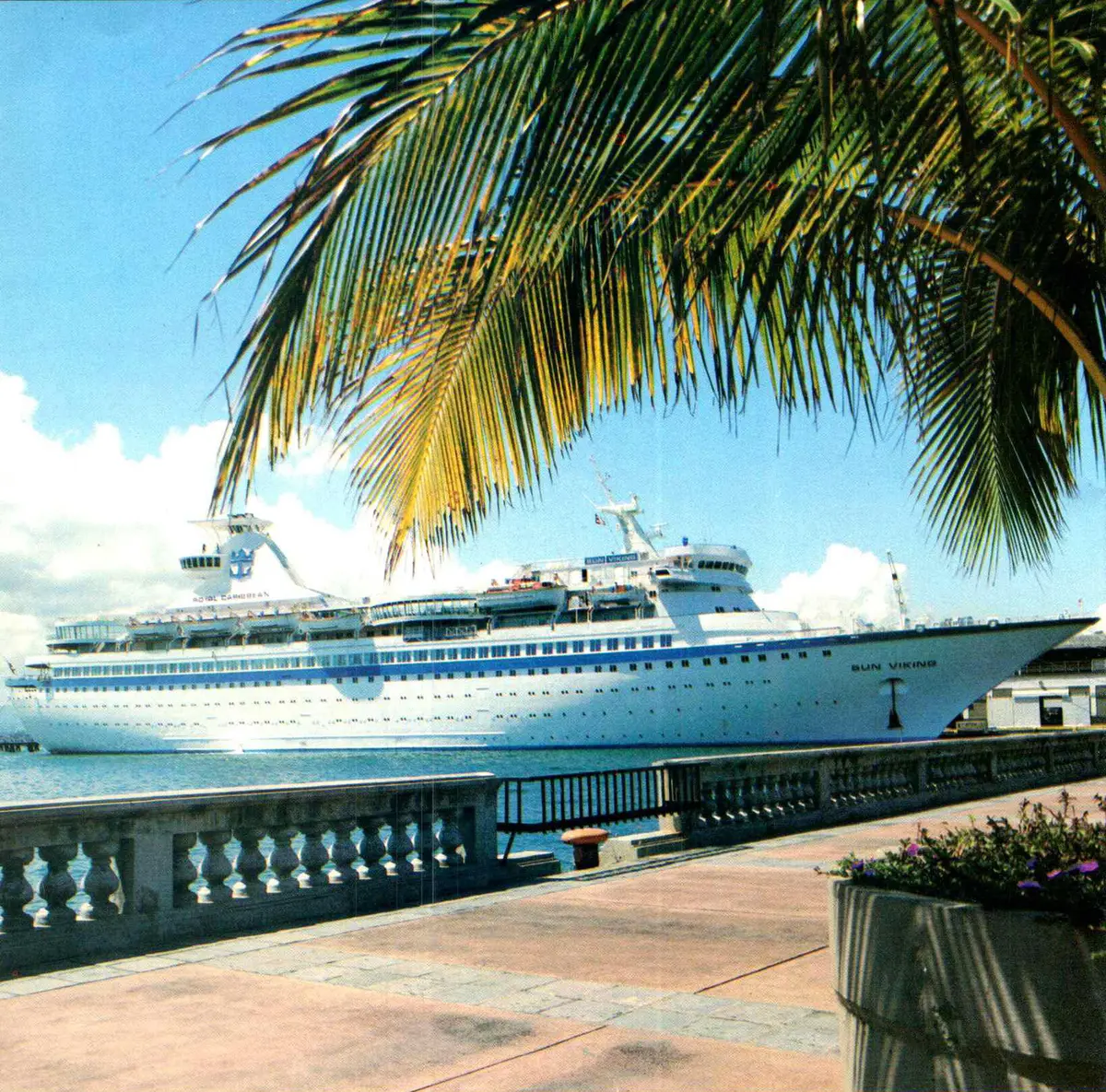
If you preferred a longer cruise, Nordic Prince and Sun Viking sailed 10-night cruises from Miami down to the Southern Caribbean, going as far as Barbados.
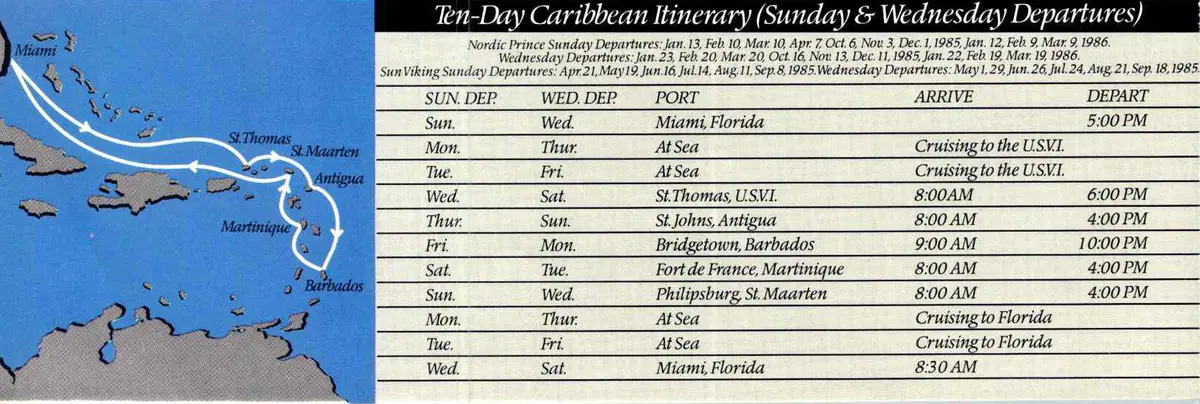
Longer cruises offered a more traditional cruise experience to get to more exotic ports, and they were still a staple of the industry. Today, 7-night cruises are the norm, and longer sailings tend to be outliers, especially in the Caribbean.
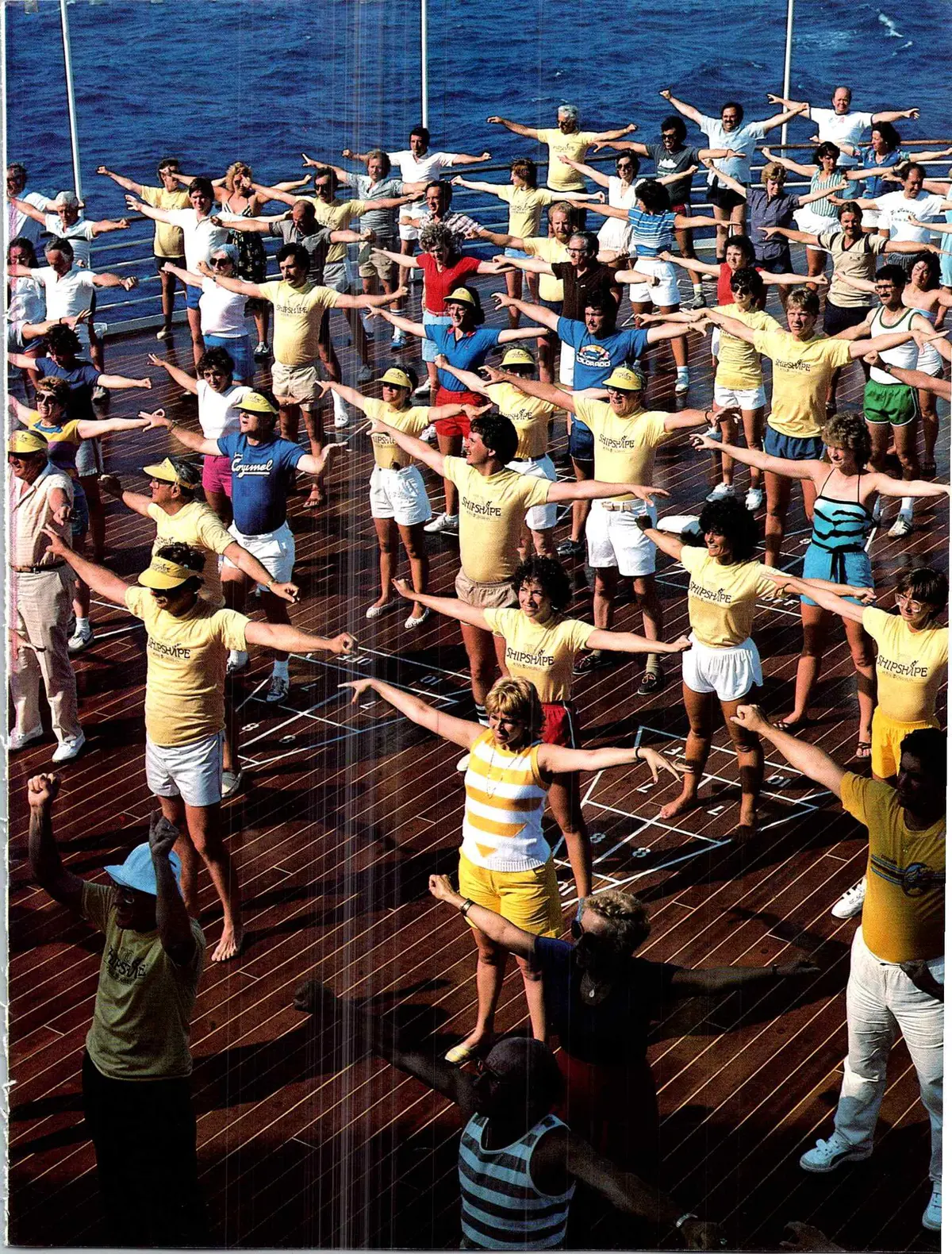
Being the 1980s, ships had certain features that no longer are a thing. Royal Caribbean advertised access to cable, Telex, and regular news bulletins. There was also a "Chinese laundry".
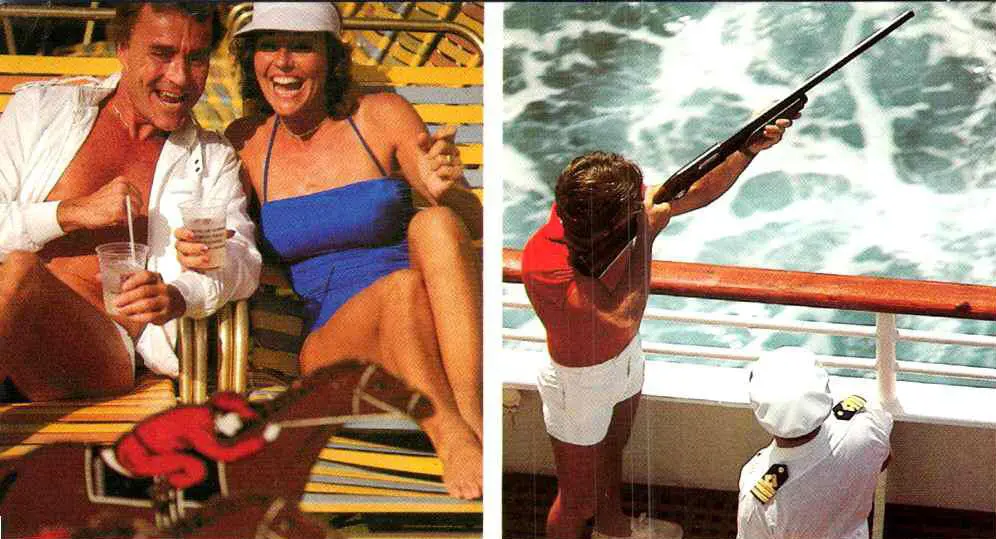
Skeet shooting off the back of the ship was still offered, where guests were given shotguns to shoot clay pigeons into the ocean.
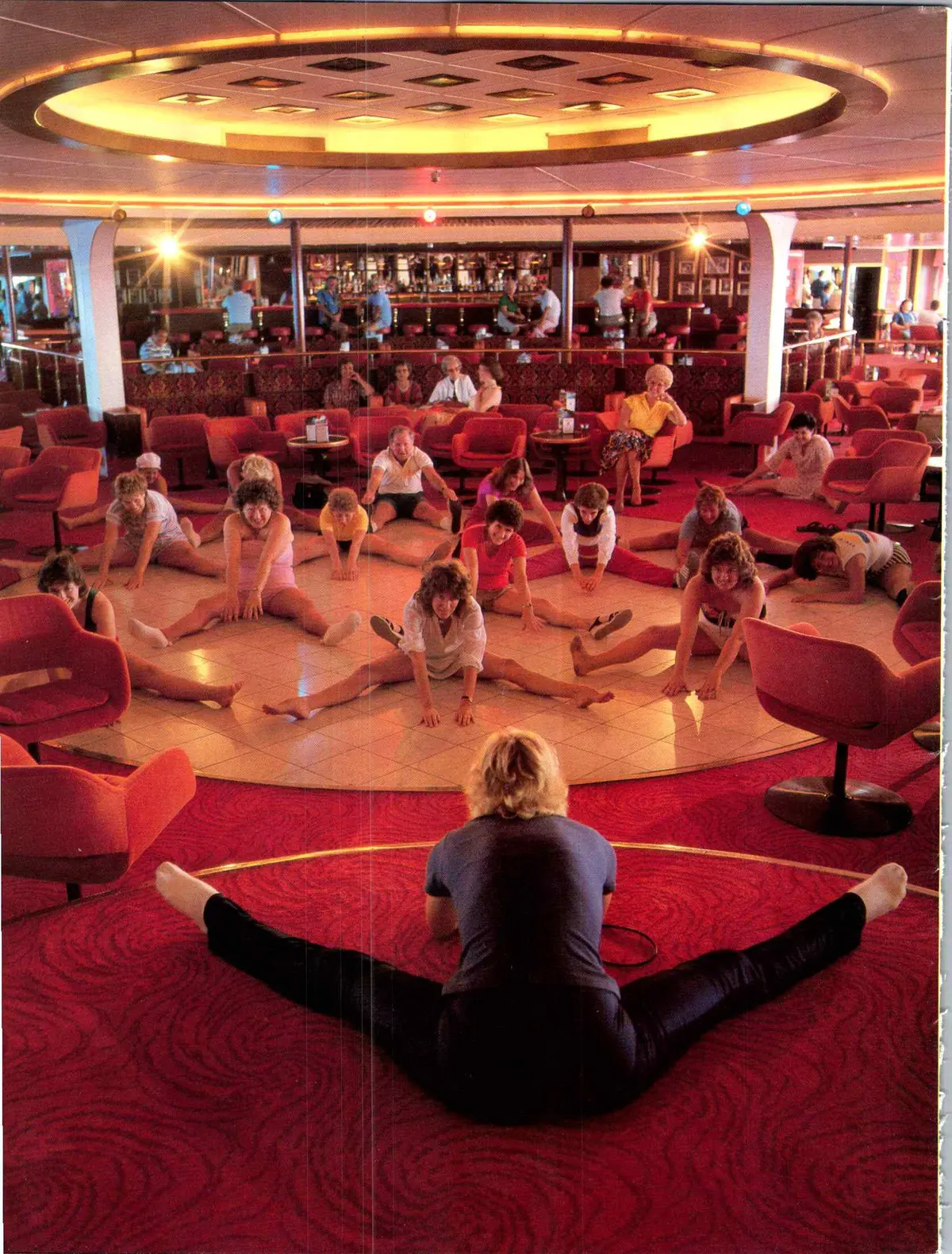
The core cruise experience is largely the same then as it is today. The primary difference is what's offered onboard ships now, as well as the immense size difference.
Cruising as evolved since its early days, and some fads come and go, while other aspects of cruising remain the same today.
Read more: 10 Ways Cruising Has Changed in the Last 30 Years



